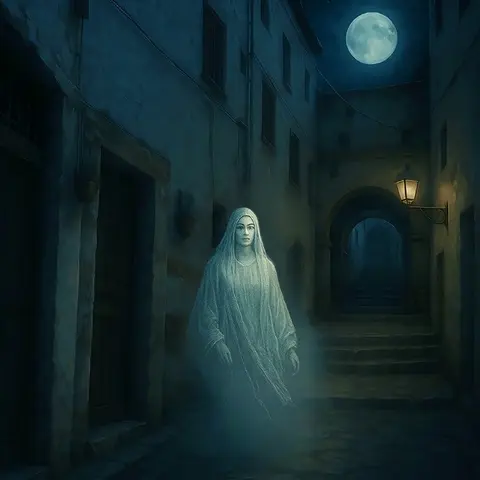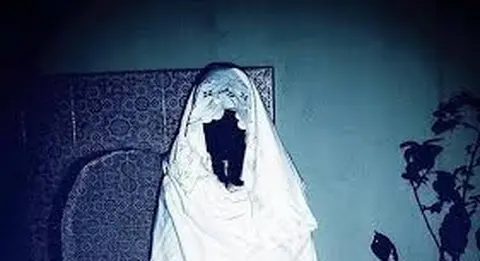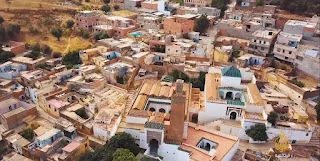She is known as Lalla Ghriba, a woman once revered for her piety, who over time became the center of haunting tales, straddling the boundary between faith and the supernatural.
Historical Background
Tradition holds that Lalla Ghriba was a devout and pure woman, admired for her faith. She was buried in Tlemcen’s El-Kourane district, where a small mosque still bears her name: the Mosque of Lalla Ghriba. While historical records about her life are scarce, her burial place has remained a symbol of sanctity, slowly transforming her image from that of a holy woman into that of a mystical guardian enveloped in legend.
The name “Ghriba” itself is not unique to Tlemcen. It appears across the Maghreb in spiritual landmarks: a mosque in Fez, Morocco, and the famous El Ghriba Synagogue on the Tunisian island of Djerba. The recurrence of this name suggests its association with mystery and sanctity throughout North African culture.
The White Apparition
The most captivating element of Lalla Ghriba’s legend is the tale of her apparition at night. Residents of old Tlemcen whisper that after dusk, a white spectral figure drifts through the narrow alleys. Both children and adults claim to have seen this ghostly presence, describing a mixture of awe and dread at the encounter as though the invisible world had crossed into the visible.
Her legend deepens with accounts of an unseen voice:
A gentle laugh is considered a good omen, foretelling prosperity, childbirth, or salvation from misfortune.
A sigh or moan, however, is an omen of disaster: a theft, a fire, even a natural calamity—and in some versions, a warning of danger threatening a child.
According to the elders, Lalla Ghriba’s predictions never fail. To ignore them, they say, is to invite tragedy. Thus, the once-revered woman became transformed in memory into a spiritual guardian of the quarter—half merciful protector, half harbinger of doom.
Stories Passed Down
The oral traditions of Tlemcen are rich with anecdotes. Some residents swear they have heard her soft laughter drifting through the night; others speak of eerie groans that seemed to shake their very walls. None of these accounts have ever been scientifically verified, yet they endure as part of the community’s collective belief, where folklore and faith intertwine inseparably.
Cultural Legacy
Today, the younger generations rarely speak of Lalla Ghriba, though older residents still recall her name with reverence. No official rituals or annual festivals are held in her honor. Still, the modest mosque in her old neighborhood stands as a reminder of her enduring presence. Like many local legends, her story is fading under the weight of modern life and urbanization, yet it survives as a fragment of memory in Tlemcen’s cultural tapestry.
The Unforgettable Guardian
Was Lalla Ghriba truly a pious woman whose sanctity birthed a legend? Or is she instead a manifestation of the people’s need to explain the unseen, blending religion with the supernatural? Whatever the case, she embodies another side of Tlemcen: a city where history meets spirituality, and where the mystical quietly lingers in the shadows of the old alleys.








No comments:
Post a Comment